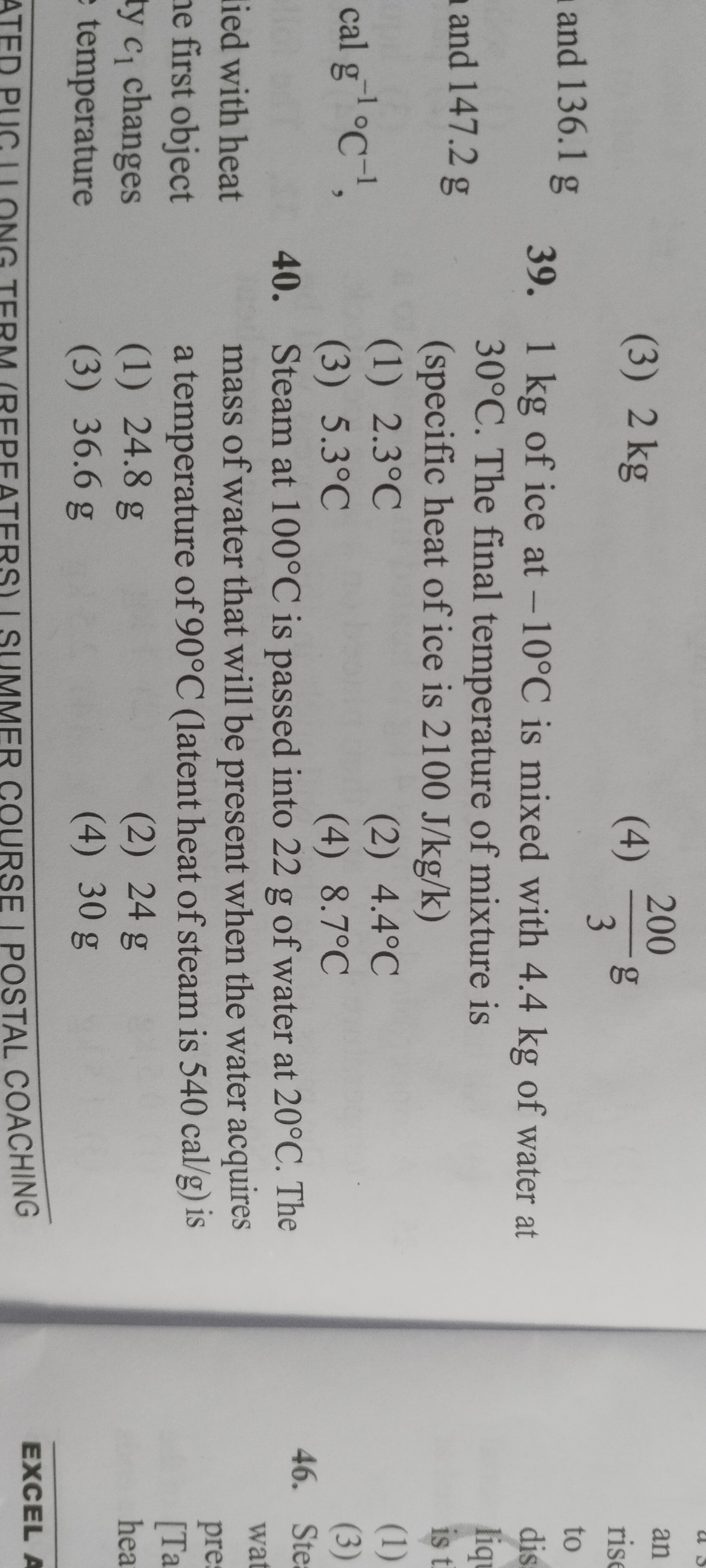NEET Class neet Answered

Question # 39
Let m = 1 kg be mass of ice , Cice = 2100 J/kgK is specific heat of ice , L = 3.34 × 105 J is
latent heat of fusion of ice, Cw is specific heat of water and T is final temperature of water after ice is completely melted.
Heat gain by ice = m Cice ΔT + m × L + m × Cw × T
where ΔT = 10o C is the change in temperature of ice from initial point to melting point.
Heat gained by ice = ( 1 × 2100 × 10 ) + ( 1 × 3.34 × 105 ) + ( 1 × 4186 × T) J
Heat gained by ice = 3.55 × 105 + ( 4186 × T ) J
Let mw be the mass of water .
Heat lost by water = mw × Cw ( 30 - T ) = 4.4 × 4186 × (30 - T )
By conservation of energy , Heat gained by ice equals heat lost by water.
4.4 × 4186 × (30 - T ) = 3.55 × 105 + ( 4186 × T )
By solving above expresstion for T , we get T = 8.7o C
--------------------------------------------------------------------------------------------------
Question # 40
Let ms be the mass of steam and Lv = 2.260 × 106 J/kgK be the latent heat of vapouraisation.
Heat lost by steam = ( ms × Lv ) + ( ms × Cw ( 100 -90 ) )
Heat lost by steam = ms × [ 2.260 × 106 + 4186 × 10 ] = ms × 2.302 × 106 J
Let mw be mass of water.
Heat gain by water = mw × Cw × ΔT = 22 × 10-3 × 4186 × ( 90 - 20) J = 6.446 × 103 J
By conservation of energy , heat lost by steam equals heat gain by water .
Hence , we get
ms × 2.302 × 106 = 6.446 × 103
ms = 2.8 g
Total mass of water at end = mw + ms = ( 22.0 + 2.8 ) g \ = 24.8 g



